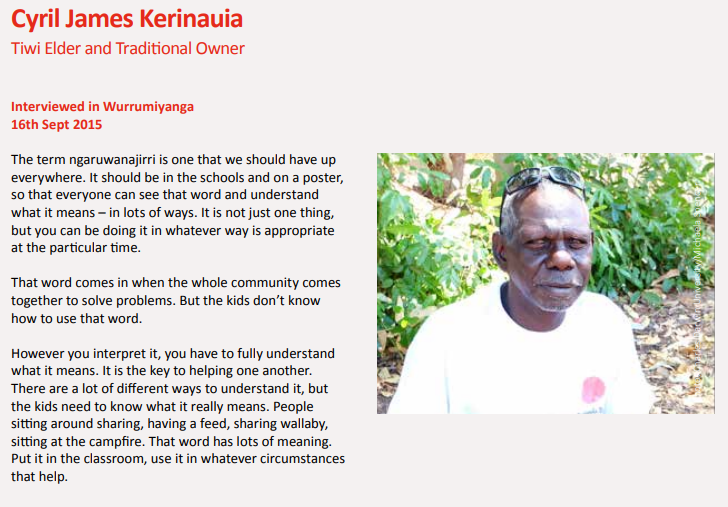Step 3: Carrying out the research / getting the true stories
After listening to your elders, and coming to an agreement, you will start the research.
There are different ways that it may be appropriate to do your resarch…
- You might sit with key people and record their stories
- You might make a video of an important event
- You might carry out interviews and make video or audio recordings of what people share with you
- You might take photos of certain places or areas and then share the story of why they are important
- You may create an artwork that shares particular knowledge or a significant story
As you work, keep going back to your senior people to let them know what is happening and ask them how they feel about it.
Thinking about research ethics…
Often, when resarch work is funded by universities or other organisitons, they will have their own ethics protocols that need to be followed. Often this includes working with a consent form that any participants in the research can sign saying that they understand what is happening and they agree to be involved.
If you want to use a consent form for your research you can download an sample: HERE
There is another Tiwi researcher, Mavis Kerinaiua, who has worked hard to share the Turtuni story as a guide to ethical research practices for Tiwi and non-Indigenous people. Take a look at this framework below. On page 8 there are a set of Tiwi ethical principles. Consider how you may be practicing these when you do your research work.
What will be the outcome, or the benefit, of the research?
Very often, Indigenous community-based reseach is not about finding out something new. It is about sharing something with services or non-Indigenous organisations that the elders and community members already know very well. Its about making Tiwi ways, Tiwi stories and Tiwi governance more visible to organisations and services so they better understood right ways to work within the community.
How will Tiwi people benefit from the research you are carrying out? This is an important question, that was probably already part of the discussion with your elders.
In a past project on ‘volunteering’ Tiwi elder Cyril Kerinaiua suggested that remembering the Tiwi term nguruwanajirri is importnat for both Tiwi people and services, like red Cross, that collaborate with them.


